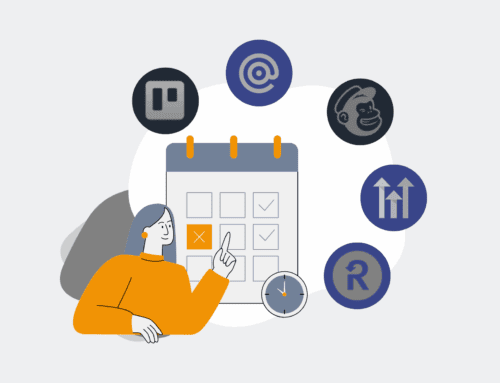GDPR and Scheduling Tools: Ensuring Compliance in Automated Processes
In today’s fast-paced business environment, the adoption of automated scheduling tools has become indispensable for efficiency, especially in sectors like HR, recruiting, and business services. From coordinating candidate interviews to client consultations, these tools streamline operations, saving countless hours. Yet, with this convenience comes a critical responsibility: navigating the complex landscape of data privacy regulations, particularly the General Data Protection Regulation (GDPR). For business leaders, overlooking GDPR compliance in automated scheduling isn’t just a minor oversight; it’s a significant risk that can undermine trust, invite hefty fines, and jeopardize the very operational efficiency these tools are meant to deliver. At 4Spot Consulting, we understand that true automation success lies at the intersection of innovation and compliance.
The Intersecting Worlds of Automation and Data Privacy
Automated scheduling tools, by their very nature, are data collection instruments. They gather names, email addresses, time zone information, and often specific details about the purpose of a meeting. In some cases, depending on the nature of the interaction (e.g., health assessments, sensitive client discussions), they might even inadvertently touch upon special categories of personal data. Each piece of information collected, stored, and processed falls under the purview of GDPR if it pertains to individuals within the European Economic Area. This mandates a clear understanding of fundamental GDPR principles: establishing a lawful basis for processing, adhering to data minimization, ensuring transparency, respecting data subject rights, and maintaining robust data security.
Key GDPR Principles for Scheduling Tool Usage
Lawful Basis for Processing
Before any personal data is processed by a scheduling tool, there must be a lawful basis. For many scheduling scenarios, ‘contract performance’ (e.g., scheduling a service delivery as part of a client agreement) or ‘legitimate interest’ (e.g., an internal meeting with employees) might apply. However, ‘consent’ often comes into play, especially when scheduling with prospective clients or candidates where there isn’t an existing contractual relationship. Consent must be freely given, specific, informed, and unambiguous. It’s crucial to differentiate when a simple invitation suffices under legitimate interest versus when explicit consent is legally required, documenting this decision-making process thoroughly.
Data Minimization and Purpose Limitation
GDPR dictates that data collected should be adequate, relevant, and limited to what is necessary in relation to the purposes for which they are processed. For scheduling tools, this means only requesting information essential to set up and conduct the meeting. Do you truly need a person’s full address for a virtual call? Probably not. Furthermore, once the purpose for which the data was collected has been fulfilled (e.g., the meeting has occurred), the data should be either anonymized or securely deleted, adhering to defined retention policies. Automated systems should be configured to manage this lifecycle, not just collect data indefinitely.
Transparency and Information Provision
Data subjects have a right to know how their data is being collected, used, and stored. When someone interacts with your automated scheduling tool, they should be presented with a clear and easily accessible privacy notice. This notice should detail your organization’s identity, the purpose of data processing, the lawful basis, who the data will be shared with (e.g., the scheduling tool provider), data retention periods, and, crucially, their rights under GDPR. Ambiguity breeds mistrust and non-compliance; clarity builds confidence.
Data Subject Rights (Access, Rectification, Erasure)
Individuals have several rights concerning their personal data, including the right to access, rectify, or erase their data. If someone asks for a copy of the data your scheduling tool holds about them, or requests its deletion, your processes must facilitate this promptly and effectively. This means your automated systems should either offer self-service options or provide clear internal pathways for your team to fulfill these requests. Manual, ad-hoc responses are not scalable and introduce risk.
Data Security and International Transfers
Protecting personal data from unauthorized access, loss, or destruction is paramount. This extends to the scheduling tools you use. Are they encrypted? Do they have robust access controls? What are their data storage locations? If your scheduling tool provider processes data outside the EEA, ensure they have mechanisms like Standard Contractual Clauses (SCCs) in place to legitimize these international transfers, especially in light of the Schrems II ruling. Due diligence on your vendors is not just good practice; it’s a GDPR requirement.
Navigating Compliance with Smart Automation
Attempting to manage GDPR compliance for automated scheduling tools through manual checks and fragmented processes is an exercise in futility. It’s inefficient, prone to human error, and simply doesn’t scale. The very ethos of automation – to create repeatable, error-free processes – should be applied to compliance itself. At 4Spot Consulting, our OpsMap™ framework strategically audits your current operations to uncover not just inefficiencies, but also potential compliance gaps within your automated workflows.
Through OpsBuild™, we implement AI and low-code solutions that embed GDPR compliance directly into your scheduling processes. This means automating consent collection, configuring data minimization defaults, integrating privacy notices at the point of data capture, and establishing automated data retention and deletion protocols. We move beyond theoretical compliance to practical, systemic safeguards that reduce risk and free up your high-value employees from tedious oversight tasks. The outcome is not merely compliance, but enhanced operational integrity, increased trust with your stakeholders, and the peace of mind that comes with knowing your systems are robustly protected.
A Proactive Approach to Scheduling Tool Compliance
Ensuring GDPR compliance in your automated scheduling tools is an ongoing commitment, not a one-time fix. It requires a proactive strategy that includes regular vendor reviews, internal policy development, employee training, and periodic audits of your automated workflows. As regulations evolve and your business scales, your compliance framework must adapt. By treating compliance as an integral part of your automation strategy, you transform a potential liability into a foundational strength, reinforcing your organization’s reputation and operational resilience.
If you would like to read more, we recommend this article: Mastering Interview Automation: 10 AI Tools to Conquer Scheduling Chaos









